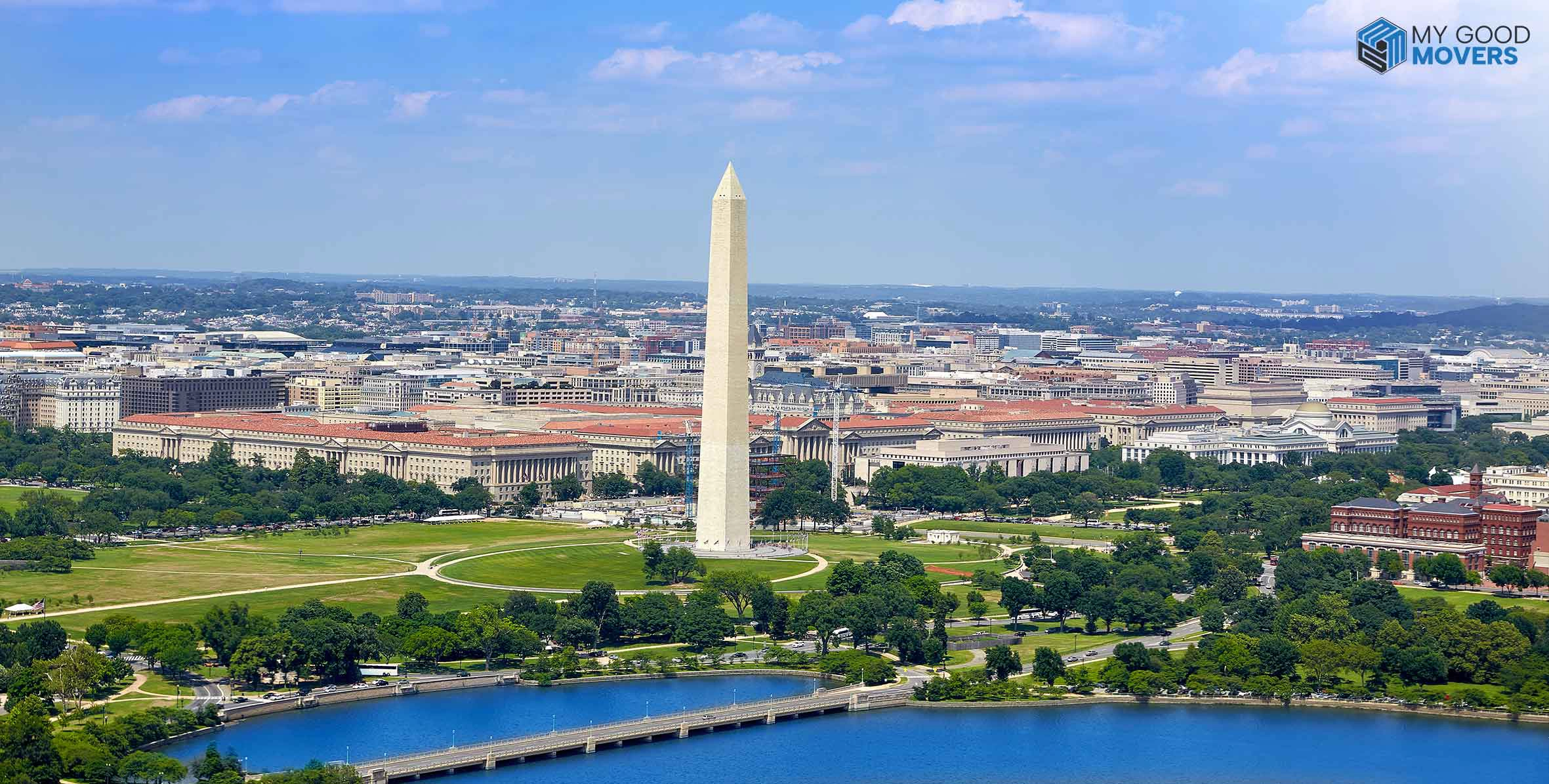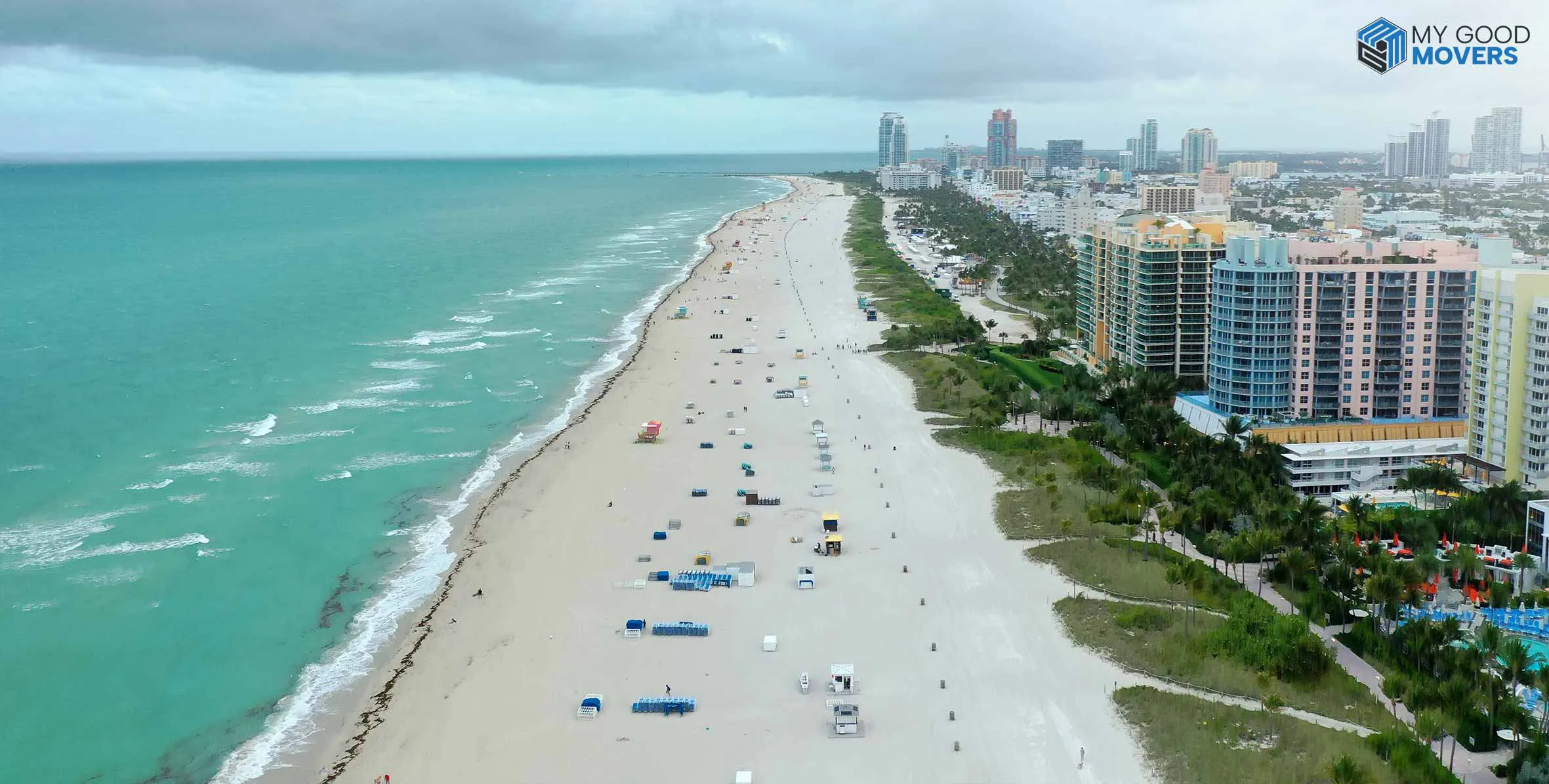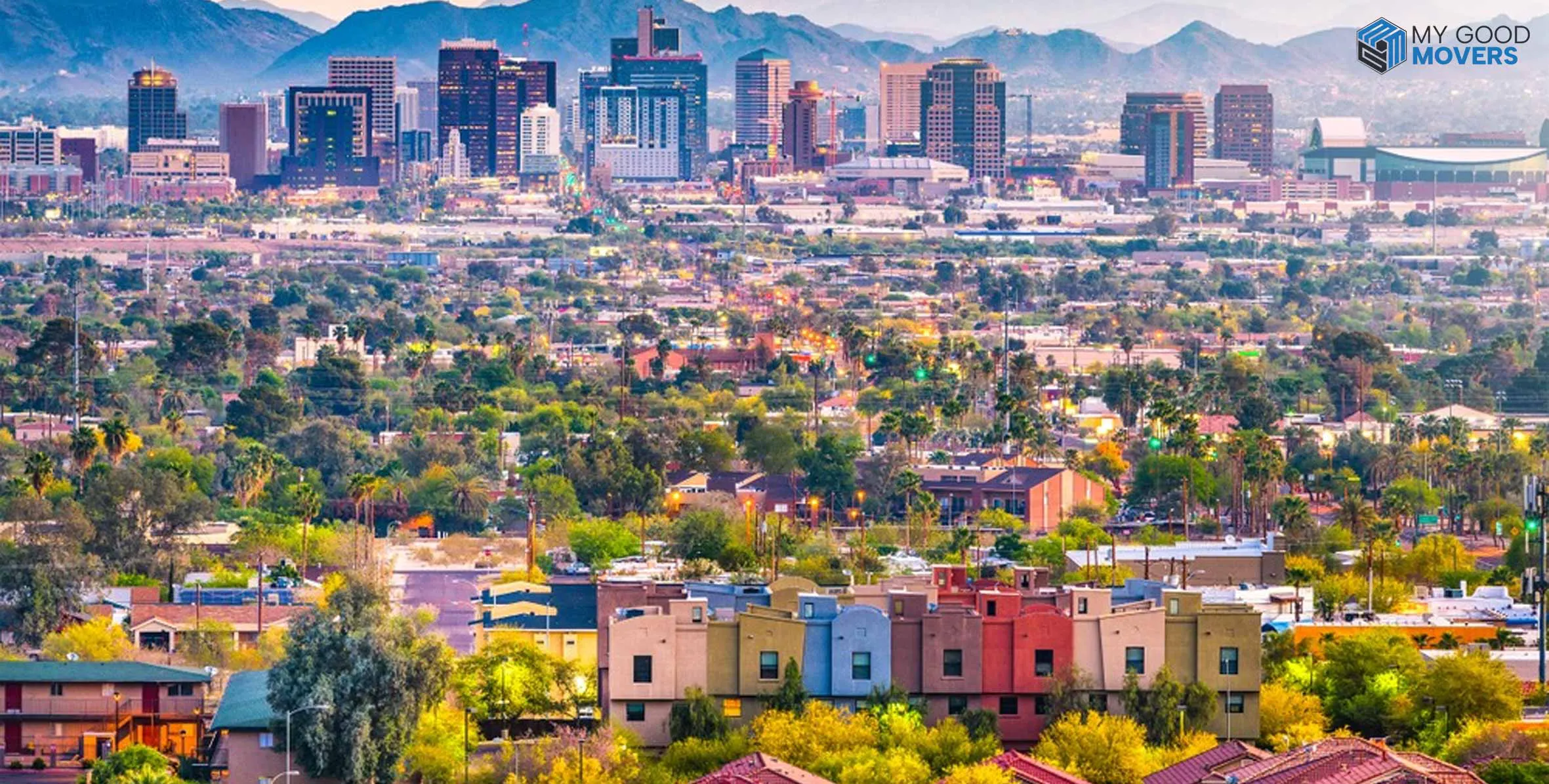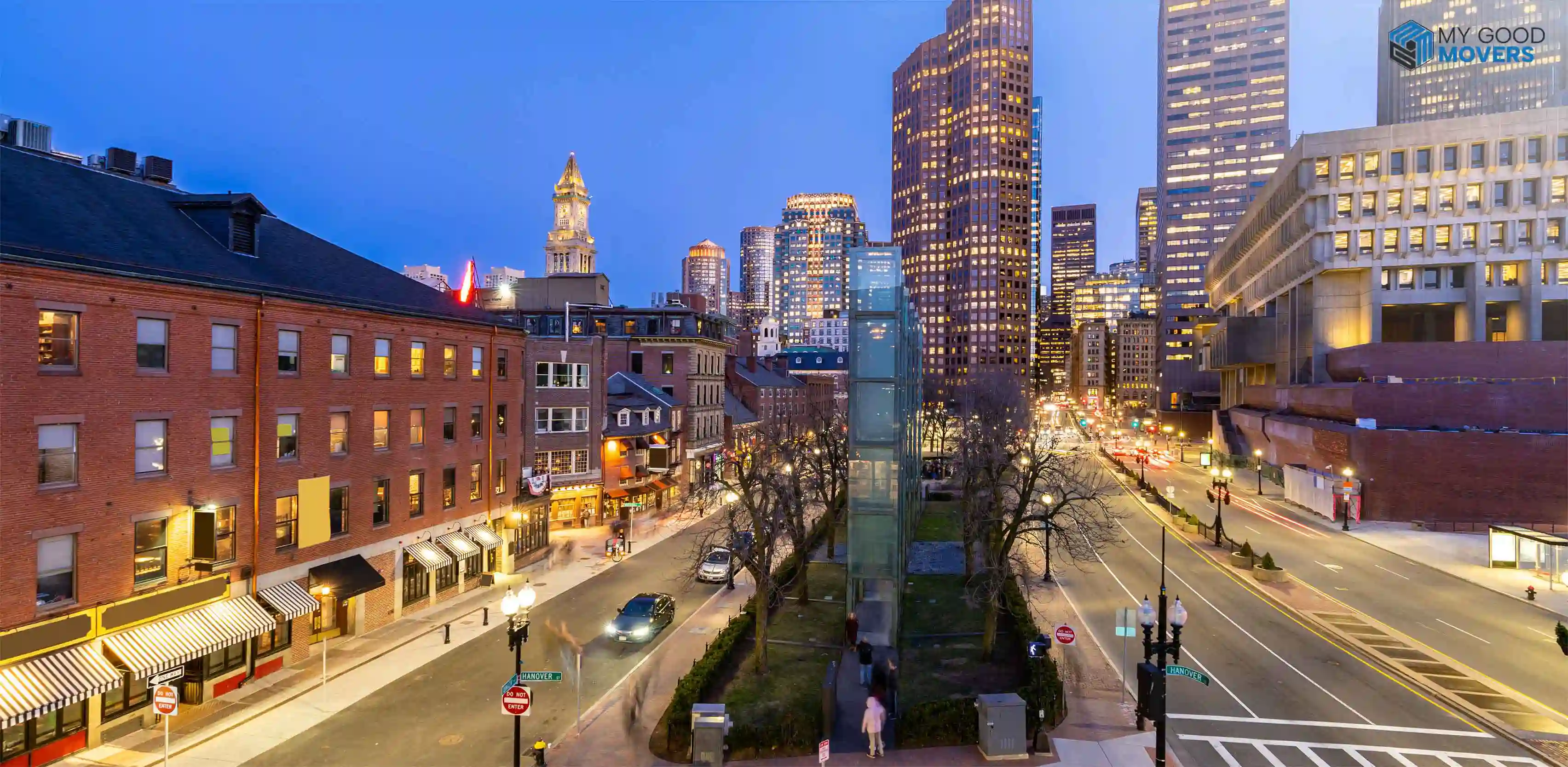Oregon is a state that makes hearts sing.
Just imagine waking up, taking a look outside, and catching a glimpse of the Cascade Mountains. Then, head out for weekend hikes on lush, green trails and sip coffee in one of the trendy urban spots in the Pacific Northwest.
But let's be honest: deciding where to live is not a simple choice; it's a matter of lifestyle, community and maybe even finances.
Oregon is a state of contrasts that offers something for everyone.
Did you know that Oregon consistently ranks among the top 10 states in the U.S. for quality of life?
Oregon has a good economy and progressive values. It also offers opportunities for dynamic education, great health care, and stunning natural beauty.
Did you know that the state had a population of 4.3 million people, and Portland had almost 650,000 residents?
This makes it a busy urban center but has lots of room for quiet small towns and coastal getaways.
And here’s the kicker: Oregon's housing market is diverse.
While the state's median home price is about $450,000, there are cities and towns for every budget.
Oregon also has a 2.5% lower cost of living than its neighboring California, which makes it a perfect alternative to the West Coast ambiance without spending a fortune.
Now, let’s explore this beautiful state and find the best places to live in Oregon.
Portland – A Place Where Urban Meets Nature
Portland is Oregon’s flagship city, balancing metropolitan perks with unmatched access to outdoor pursuits.
Lifestyle: Portland is famous for its “weird” culture, food trucks, craft breweries, and bike-friendly streets.
Job Market: It's a tech and creative hub, and it's home to major employers like Nike and Intel.
Housing: While the cost of living in Oregon is generally high, Portland really stands out. At around $523,622, median home prices are higher than in many smaller towns yet affordable compared to other large American cities.
If you're deciding whether to live in Portland or Eugene, Portland is more fast-paced and urban and has more career growth, while Eugene is more laid-back and collegiate.
Eugene – Known as The Emerald City
Eugene located a short distance south of Portland in the Willamette Valley, is a destination for both environmentalists and the cerebral elite.
Community Vibe: Eugene, home to the University of Oregon, is dynamic, fresh-faced and eclectic.
Outdoor Activities: It is a bike-friendly city that has 250 plus bike paths and trails.
Cost of Living: Slightly less expensive than Portland, Eugene has a more affordable real estate market, which is great for families and retirees.
Eugene is among the most livable cities in Oregon because of its close-knit community, high-quality schools, and proximity to the Cascade Mountains.
Bend – An Outdoor Paradise
If skiing Mt. Bachelor, fishing the Deschutes River or hiking the Cascade Mountains looks like it checks your boxes, Bend could be your perfect slice of America.
Economy: Bend’s booming tourism and craft brewing industries on its doorstep make it a magnet for entrepreneurs.
Affordability: Bend is one of the most expensive cities, with median home prices hovering at about $726,400, but many feel its lifestyle is worth paying for.
Safety and Family Life: Bend is one of the safest places to live in Oregon, with low crime rates and family-friendly amenities.
Salem - The State Capital
Salem provides a mix of urban and suburban life since it is near Portland without the frenzy.
Cost of Living: Median home prices here are considerably lower, about $418,512, making it one of the most affordable cities in Oregon.
Quality of Life: Its central location gives you easy access to both coastal and inland attractions.
Coastal Gems of Oregon
There's something magical about the Oregon coast—its raw, rugged beauty that has been unspoiled by human hands.
Stretching over 360 miles, it offers a mixture of scenic views, historical towns and close-knit communities.
Let's take a look at two of our favorite stops on the coast:
Cannon Beach
If you’ve ever seen a postcard of the coast of Oregon, it was probably that of Cannon Beach.
Though the town has that movie-set look about it (it’s anchored by the iconic Haystack Rock, which emerges stunningly from the ocean)
Cannon Beach is known not only for its scenic beauty but also for its relaxed way of life.
Perfect for retired couples looking to escape the hassle of urban living.
But it’s not cheap to live here. Median home prices are around $900,000, so it’s one of the more exclusive towns along the coast.
But residents swear it’s worth the price for the stunning views and proximity to unspoiled beaches.
Newport
Just 90 minutes south of Cannon Beach lies Newport, another coastal town with its own brand of charm.
Well-known for its working waterfront, Newport boasts a bustling fishing industry and endearing small-town charm.
It's a place where you can see fishing boats come in with the day's catch or walk along the historic bayfront, which is filled with one-of-a-kind shops and restaurants.
Newport is a lovely option for families. With median home prices nearly half those of Cannon Beach, Newport is perfect for those looking for coastal living without the premium price tag.
Affordable and Safe Small Towns in Oregon
Not everyone dreams of big city life.
For those seeking quieter, more budget-friendly options without compromising on safety or community charm, Oregon’s smaller towns shine as excellent choices.
These towns are perfect for families, retirees, or anyone wanting a slower pace of life.
Albany
Located in the heart of the Willamette Valley, Albany is a town where history meets modern living.
Albany is known for its historic downtown, which is filled with beautifully preserved Victorian homes and charming shops. This gives residents a sense of nostalgia while offering all the conveniences of the 21st century.
What makes Albany so appealing? Affordability.
The median home price is approximately $275,000, significantly lower than Oregon’s state average, making it ideal for first-time buyers or families on a budget.
Beyond its affordability, Albany is also one of the safest places to live in Oregon, with a crime rate well below the state average.
Silverton
Silverton, often referred to as the “Garden City of Oregon,” is a town that exudes charm and warmth.
It is known for its stunning Oregon Garden and a sprawling 80-acre botanical garden.
This town is a dream for anyone who loves natural beauty and community-centric living.
Silverton is especially attractive for families and retirees. With a focus on safety and education, the town boasts some of the best schools in the state and is consistently ranked among the safest places to live in Oregon.
Although smaller than Albany, Silverton has a rich cultural and artistic scene.
Housing here is slightly more expensive, with median home prices typically higher than in Albany, but residents believe the benefits of living in such a well-rounded, safe town are worth it.
Retirement-Friendly Cities in Oregon
For retirees, Oregon offers a mix of tranquil settings, vibrant communities, and excellent healthcare access.
Ashland
Located in southern Oregon, Ashland is renowned for its vibrant arts scene, which is anchored by the world-famous Oregon Shakespeare Festival.
For retirees who love culture, Ashland offers a year-round lineup of plays, concerts, and art exhibitions.
The cost of living here is attractive for many retirees, with median home prices around $220,800.
In addition to its cultural offerings, Ashland has mild weather and a strong sense of community, which makes it one of the best places to retire in Oregon.
Florence
If ocean views are on your retirement wishlist, Florence delivers in spades.
Located along Oregon’s scenic coastline, Florence offers a slower pace of life without sacrificing basic facilities.
Affordable housing options make it accessible, and the town’s proximity to the Siuslaw River and Pacific Ocean means retirees can enjoy fishing, boating, and serene beach walks.
With its affordability and beautiful landscapes, Florence is perfect for retirees looking for peace and natural beauty.
How Much Does it Cost to Move to Oregon?
Moving to Oregon is an exciting adventure, but it's essential to understand the associated costs to plan effectively.
Let's break down the expenses you'll encounter.
Moving Services
The cost of moving services varies based on distance, volume of belongings, and the type of service you choose.
| Service Type | Average Cost Range | Description |
|---|---|---|
| Local Move (within 100 miles) | $800 – $2,500 | Typically charged hourly, it includes loading, transport, and unloading. |
| Long-Distance Move (over 100 miles) | $2,000 – $6,000 | Based on weight and distance, it may include additional services like packing. |
| Full-Service Movers | $4,000 – $10,000+ | Comprehensive service, including packing, loading, transport, unloading, and unpacking. |
| DIY Move (Truck Rental) | $500 – $1,500 | Renting a moving truck: costs depend on size, distance, and rental duration. |
Note: These are average estimates; actual costs can vary based on specific circumstances.
Packing Supplies
Don't overlook the cost of packing materials.
| Item | Estimated Cost per Unit | Quantity Needed | Total Estimated Cost |
|---|---|---|---|
| Moving Boxes | $1 – $3 | 30 – 50 | $30 – $150 |
| Packing Tape | $2 – $4 per roll | 5 – 10 rolls | $10 – $40 |
| Bubble Wrap | $20 – $30 per roll | 1 – 2 rolls | $20 – $60 |
| Packing Paper | $10 – $20 per pack | 2 – 3 packs | $20 – $60 |
| Furniture Covers | $10 – $20 each | 5 – 10 | $50 – $200 |
Total Estimated Cost for Packing Supplies: $130 – $510
Transportation Costs
If you're driving to Oregon, don’t rule out these expenses:
| Expense Type | Estimated Cost | Notes |
|---|---|---|
| Fuel | Varies by distance | Calculate based on your vehicle's mileage and current gas prices. |
| Lodging | $70 – $150 per night | Depends on the number of days and choice of accommodation. |
| Meals | $30 – $50 per day | Per person varies based on dining choices. |
Example: A 1,000-mile trip might cost approximately $150 for fuel, $100 for lodging, and $40 for meals per day.
Temporary Housing
Upon arrival, you might need temporary accommodation while settling in:
| Accommodation Type | Average Nightly Rate | Estimated Duration | Total Estimated Cost |
|---|---|---|---|
| Hotel | $100 – $200 | 7 – 14 days | $700 – $2,800 |
| Short-Term Rental | $80 – $150 | 1 – 2 weeks | $560 – $2,100 |
Utility Setup Fees
Setting up utilities in your new home may involve initial fees:
| Utility Service | Possible Setup Fee | Notes |
|---|---|---|
| Electricity | $30 – $50 | Some providers may waive fees with good credit. |
| Water/Sewer | $20 – $50 | Varies by municipality. |
| Gas | $30 – $50 | Depends on provider policies. |
| Internet/Cable | $50 – $100 | Installation fees and promotional rates may be available. |
Total Estimated Utility Setup Fees: $130 – $250
Miscellaneous Expenses
Other costs include:
| Expense Type | Estimated Cost | Notes |
|---|---|---|
| Address Change Fees | $1 – $2 per address | For notifying institutions of your new address. |
| Driver’s License Update | $60 – $100 | Fees for updating your license to Oregon. |
| Vehicle Registration | $100 – $300 | Based on vehicle type and county. |
| Storage Unit Rental | $50 – $200 per month | If needed, extra belongings during the transition. |
Cost of Living in Oregon
It is essential to understand the cost of living in your new city.
| Expense Category | Oregon Average | National Average | Notes |
|---|---|---|---|
| Housing | $1,328 (2-bedroom rent) | $1,495 | Varies by city; Portland is higher, while smaller towns are more affordable. |
| Utilities | $150 – $200 per month | $150 | Includes electricity, heating, cooling, water, and garbage. |
| Groceries | 7% higher than the national average | __ | Costs vary based on location and lifestyle. |
| Transportation | 17% higher than the national average | __ | Includes gas, insurance, and public transit. |
Total Estimated Moving Cost
Combining all these factors, here's an estimated range:
| Expense Category | Estimated Cost Range |
|---|---|
| Moving Services | $2,000 – $6,000 |
| Packing Supplies | $130 – $510 |
| Transportation | $200 – $500 |
| Temporary Housing | $700 – $2,800 |
| Utility Setup Fees | $130 – $250 |
| Miscellaneous | $200 – $700 |
| Total | $3,360 – $10,760 |
These estimates can vary based on individual circumstances. It's advisable to obtain quotes and plan accordingly.




































 (239) 799–6077
(239) 799–6077